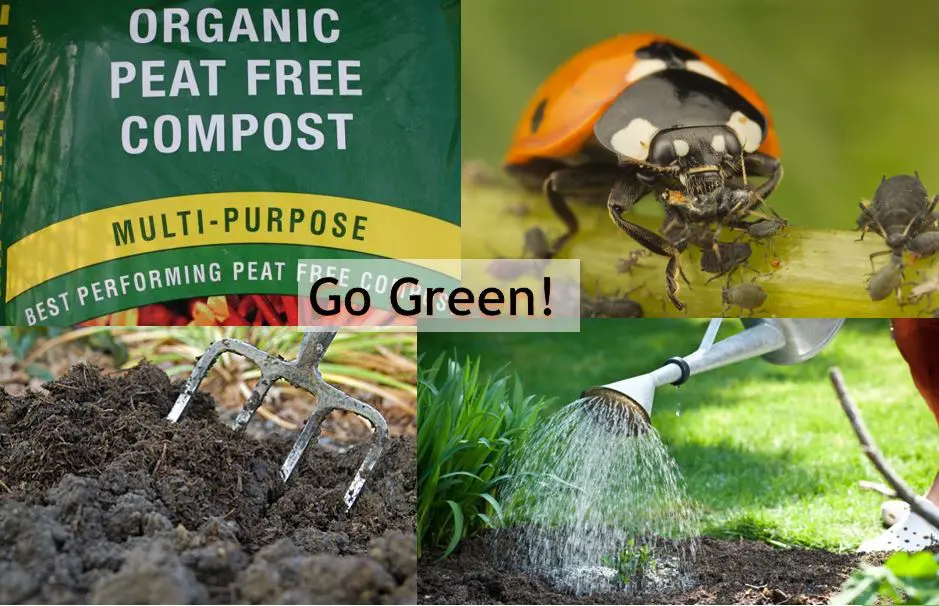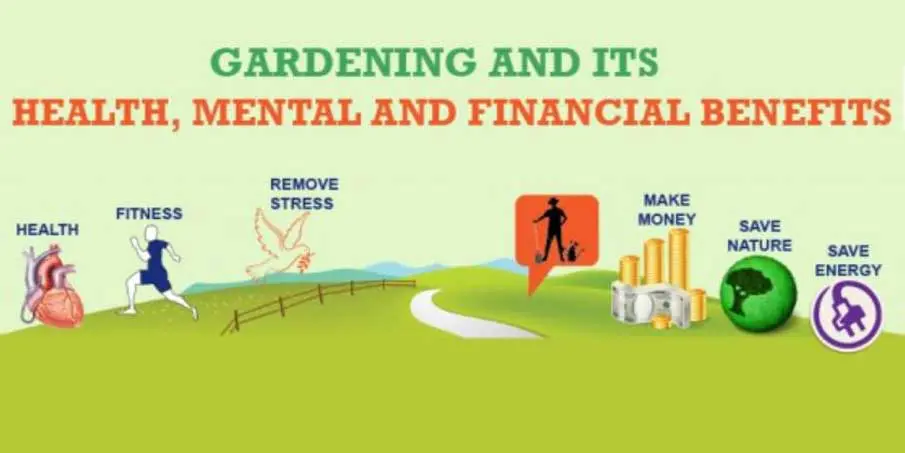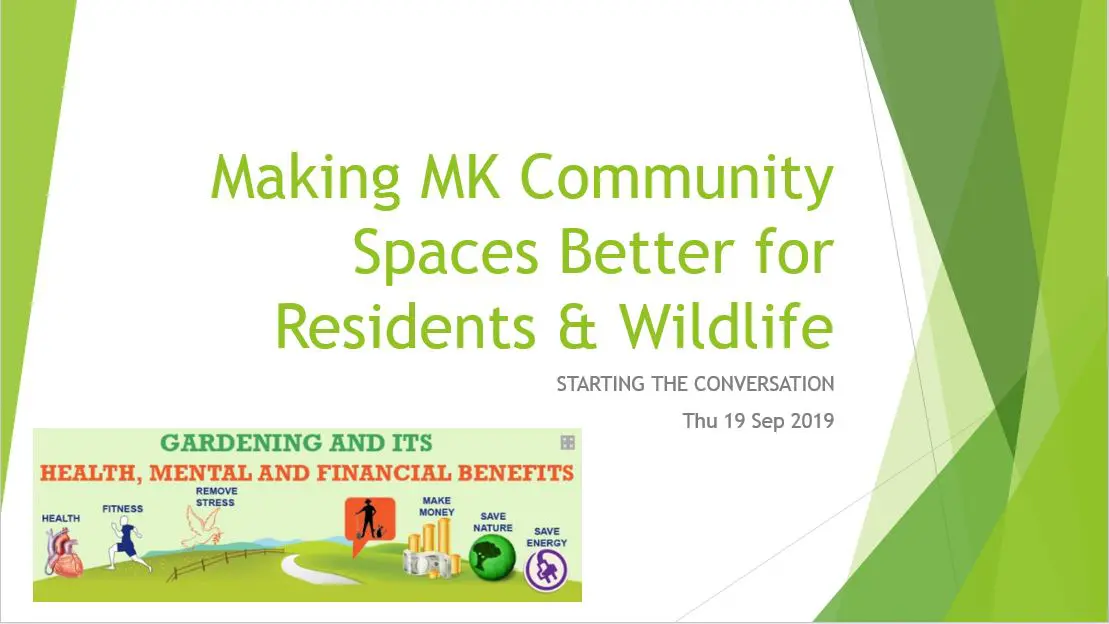On Thursday 19 September 2019 we were part of an exciting collaborative event to start a conversation about how Milton Keynes groups can work together to “green” community spaces in the city for the benefit of people and wildlife.
Everyone in the room was already actively involved in related activity and had a good idea of the environmental, social and health and well-being benefits that come from communities working together in “green” spaces. This meeting was about bringing us all together to share our knowledge and experiences to explore how we can maximise on our accomplishments by better coordinating with each other.
Planting Up: Aims
Kirsty Forshaw from the Transition Town MK Planting Up project kicked off the meeting, outlining the proposal to frame the event.
The Planting Up MK aim is to support the creation of a wildlife-friendly community garden (or area) in every estate in Milton Keynes, achieved in a way that:
(1) ensures that water is being captured and used sustainably, and
(2) that involves local residents, schools and businesses at its heart.
People Benefits
Sahira Ward from Incredible Edible Dunstable was the first of the three guest speakers to take the to stage. Her homemade courgette cake gift to the audience and brief talk about the power of small actions for creating kind, confident and connected communities proved the perfect complement to follow the TedTalk from Pam Warhurst that explained the inspiring story of the Incredible Edible global “food landscape” network.
Incredible Edible Dunstable “Come N Grow” events take place on the first Saturday of every month at Katherine Drive, Dunstable, LU5 4NP.
Health & Wellbeing benefits
Sonal Mehta, from NHS Milton Keynes Clinical Commissioning Group, was up next.
Developing on the social benefits that the Incredible Edible concept instilled, Sonal’s talk outlined the health and wellbeing benefits.
Sonal explained how the idea of GPs prescribing “community prescriptions” connects perfectly with social activities like community gardening. It quickly became apparent how community projects like this can provide pragmatic ways of supporting NHS strategies around mental health to help with issues like reducing loneliness amongst other things.
Sonal’s reference to the five ways to wellbeing social movement under the #OneADayMK hashtag, clearly resonated with the audience. This was not just because hitting one is clearly a significant achievement and much more easily attainable by focusing on just one. It was also inspiring to acknowledge how community gardens can be beneficial for individuals and the wider society involved with them from the point of view of hitting the mark with all five of them.

Wildlife Benefits
Our final guest speaker was Kate Sheard from Berkshire, Buckinghamshire and Oxfordshire Wildlife Trust (BBOWT).
Kate’s talk completed the picture of benefits by showing us the value in creating an environment rich in wildlife to benefit nature and society.
Aside from the strong reasons for us supporting the restoration of nature for environmental reasons, connected with what Sahira and Sonal had talked about, Kate referred to evidence showing that people are happier and healthier when they can enjoy time in natural, open spaces.

People benefit from improved physical, mental and emotional health and wellbeing through regular contact with nature.
Working with the “Wild MK” project that is already underway, Kate highlighted several opportunities for us to leverage the work BBOWT is already doing with a range of partners across multiple sectors. Like the Incredible Edible approach to “guerrilla gardening”, this opened up consideration for combining garden projects with educational workshops and other ways of connecting people with nature (and food) such as creating wildlife corridors.
Having heard from all the speakers, the floor was opened up to the room for everyone in attendance to input to a group discussion.
It was interesting to hear from the different representatives and learn from each other, but the resounding message was the importance of community’s being consulted in order to make their own decisions for what they want and thereby “owning” the outputs in order for projects to have any long-term sustainability.
We touched on subjects of funding sources, community consultations, incorporation of local schools and businesses, and social enterprises as well as the challenges that need to be considered with each, individual project.
It was interesting to explore how we might align our different organisational interests but this, and the logistics for how we can coordinate in future, need more discussion.
The meeting was concluded with a feeling of cohesion and a sense that we will be continuing this collaborative approach to “green” MK together; at a time when greater community resilience is exactly what we need.
The next step is to organise a follow-up meeting and invite more of our like-minded friends along for us to start inspiring some action.
To share your feedback from the event and ideas for future events, please visit the “Let’s Green MK” page on the Milton Keynes Water Community platform and add your comments.
Even if you were unable to make it the meeting this time, please register your interest along with any suggestions you have, in the Comments Area at the foot of the Water Community page or sign-up to the Planting Up mailing list to be kept informed of future developments.









